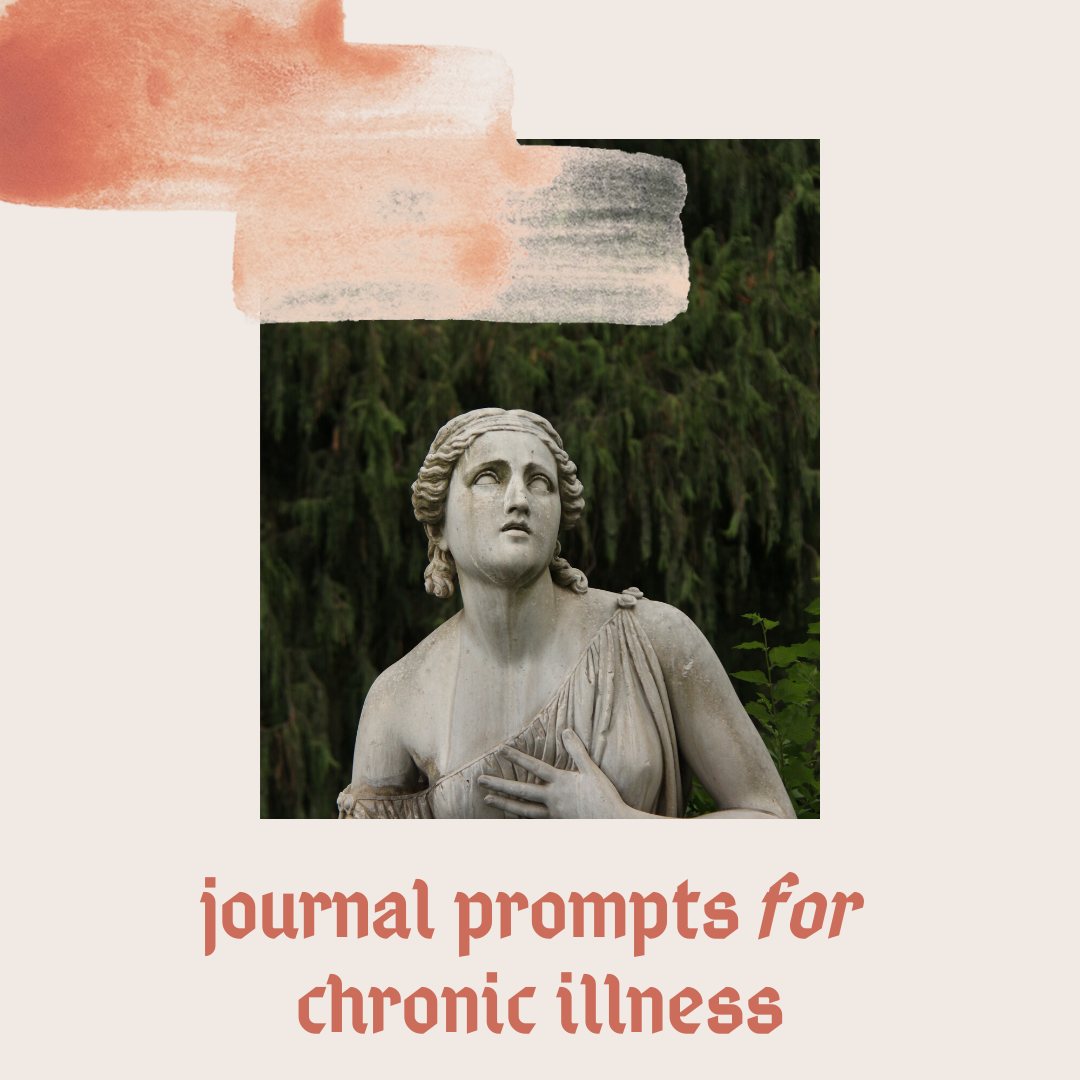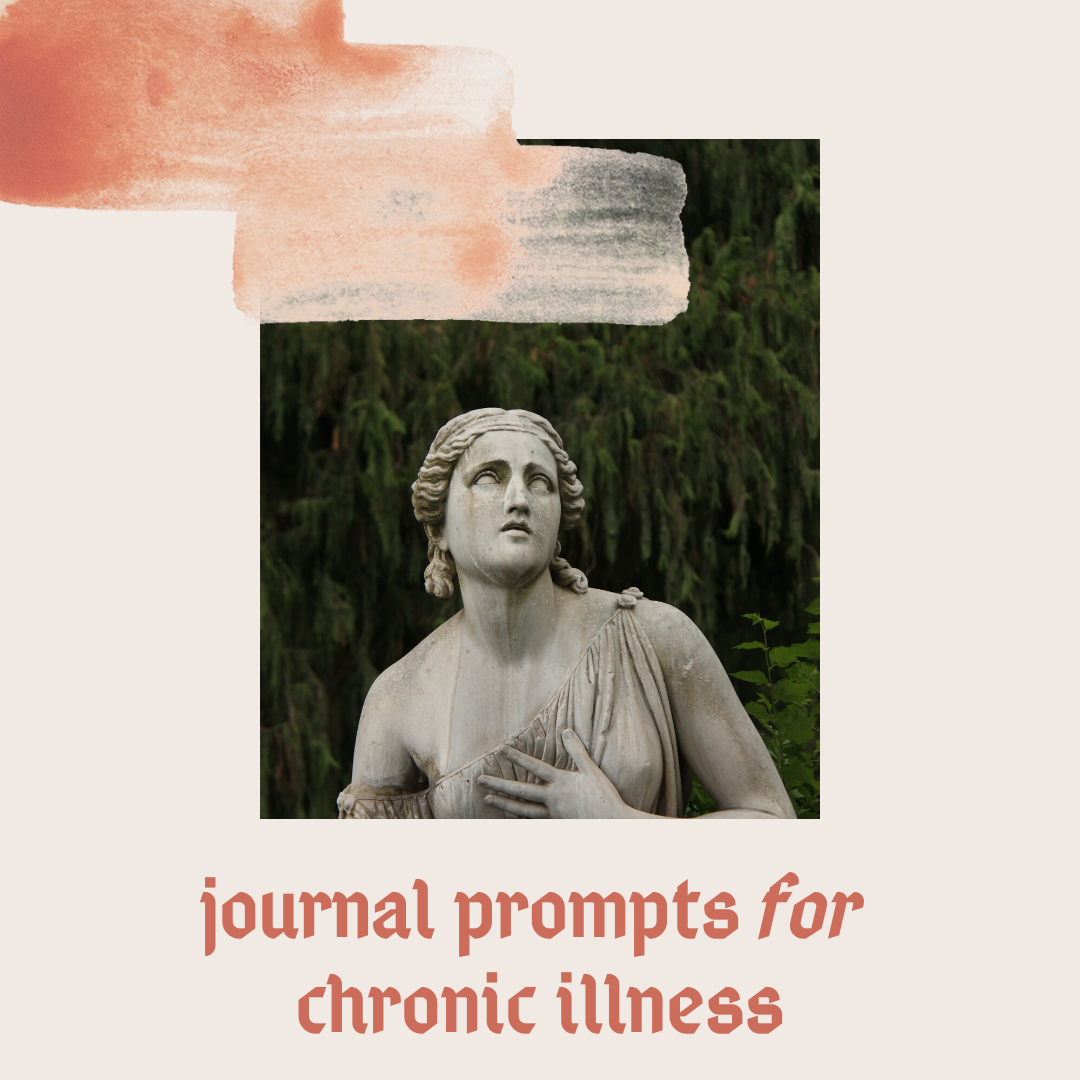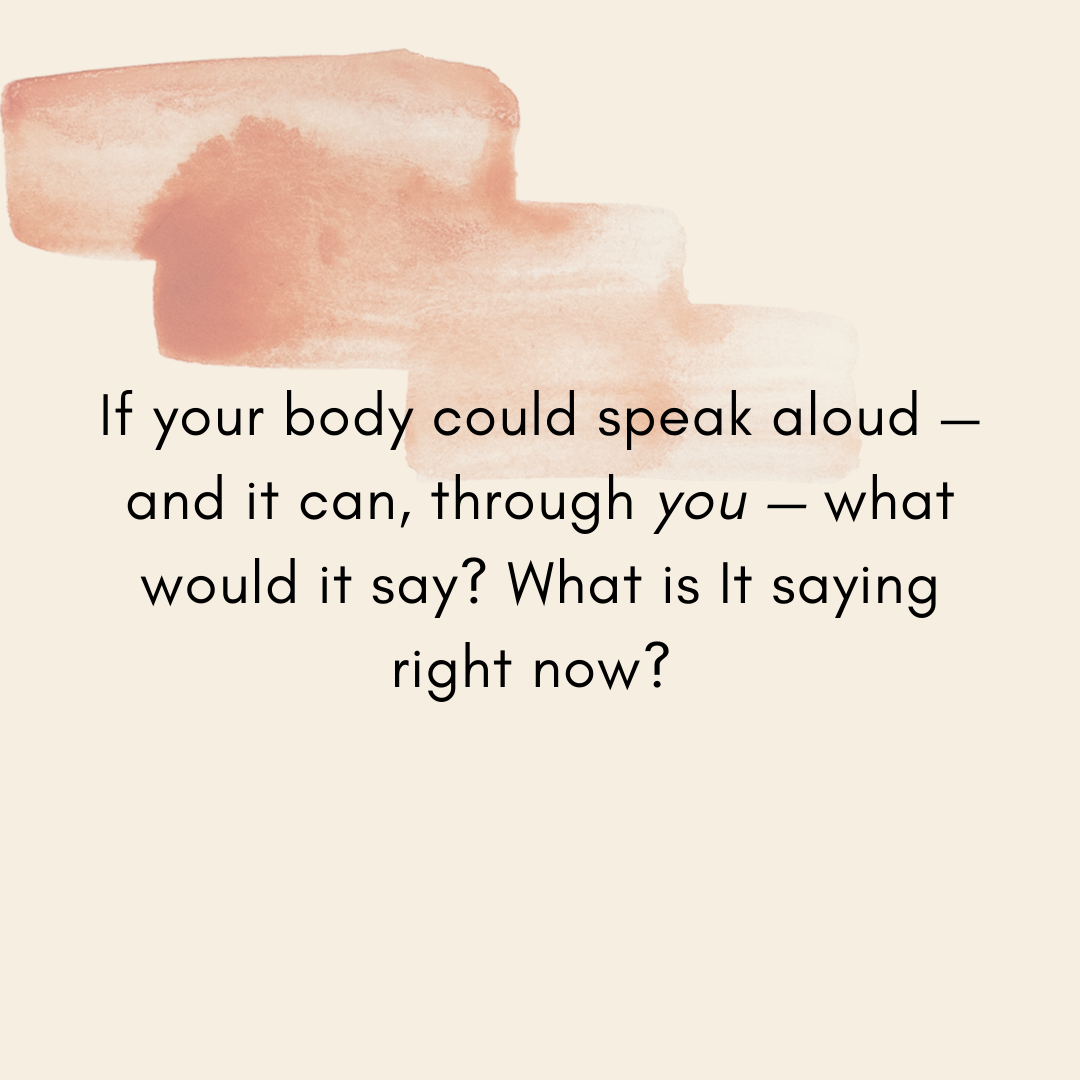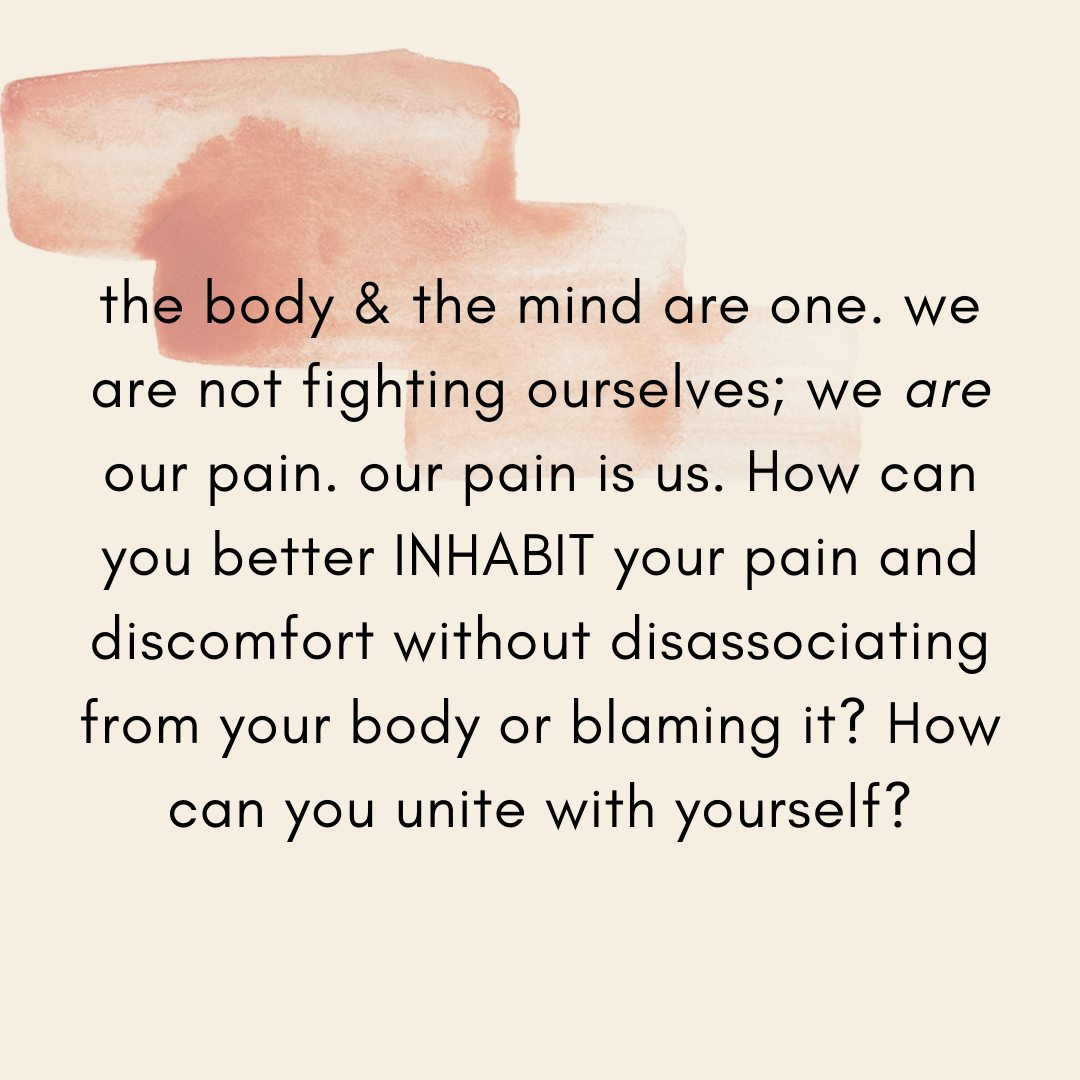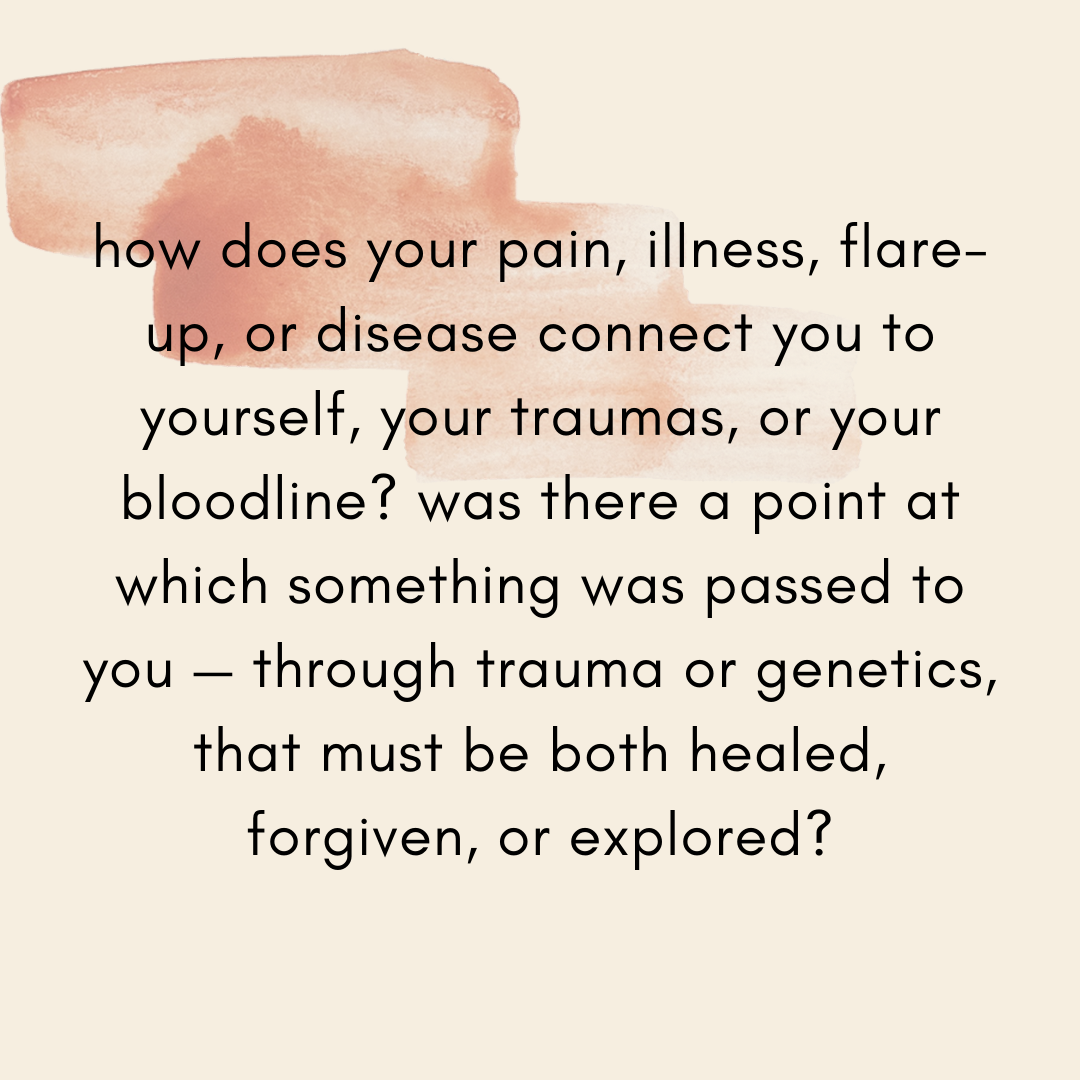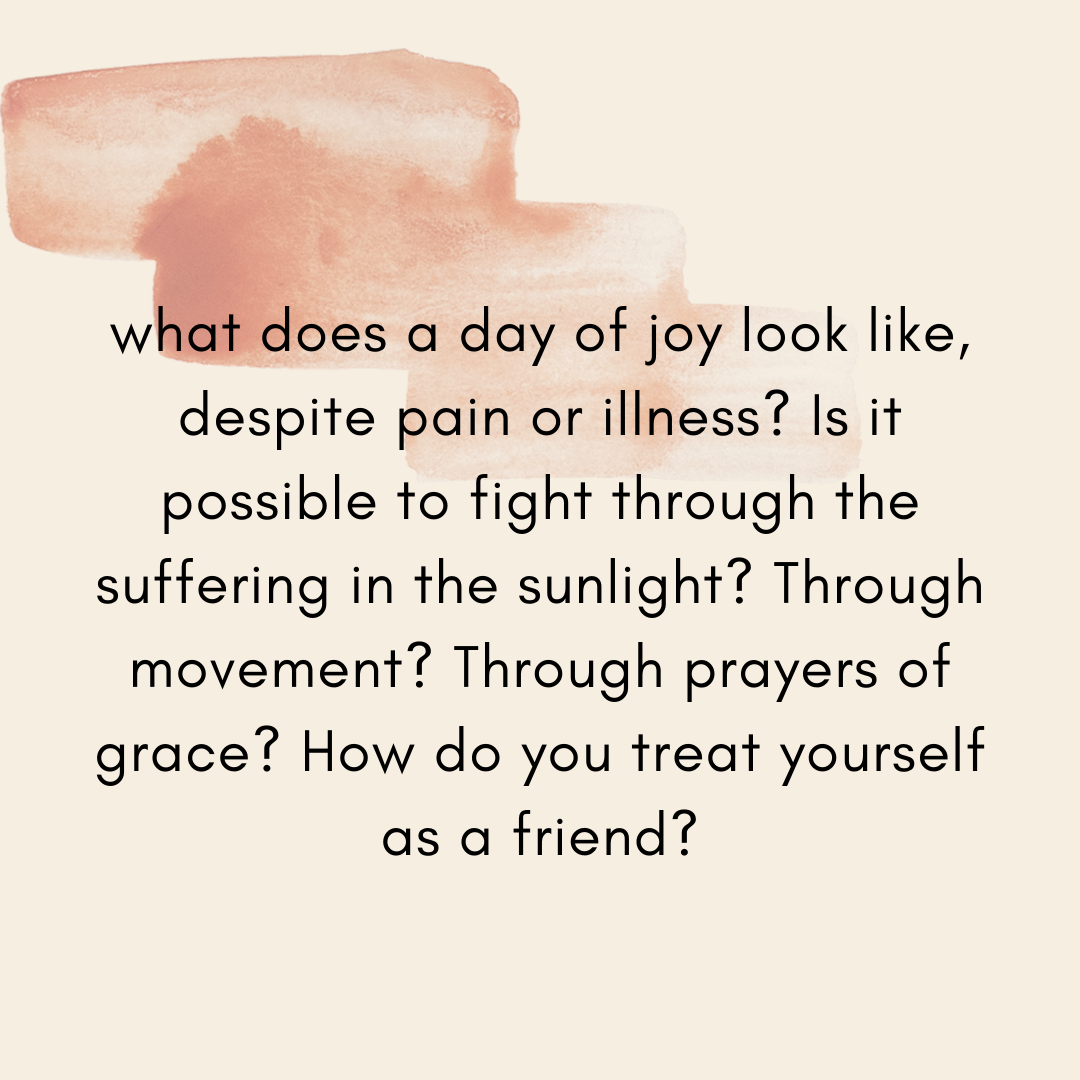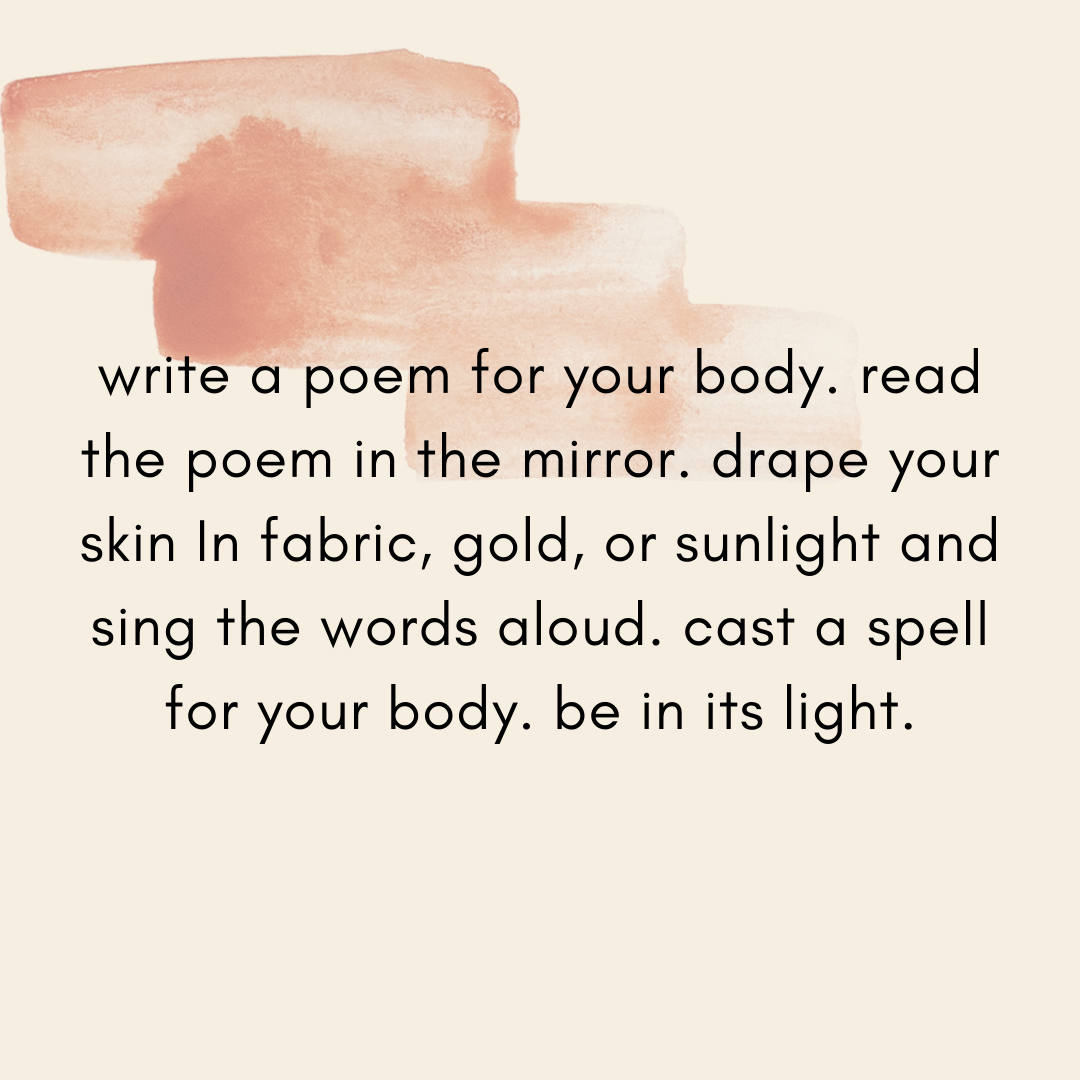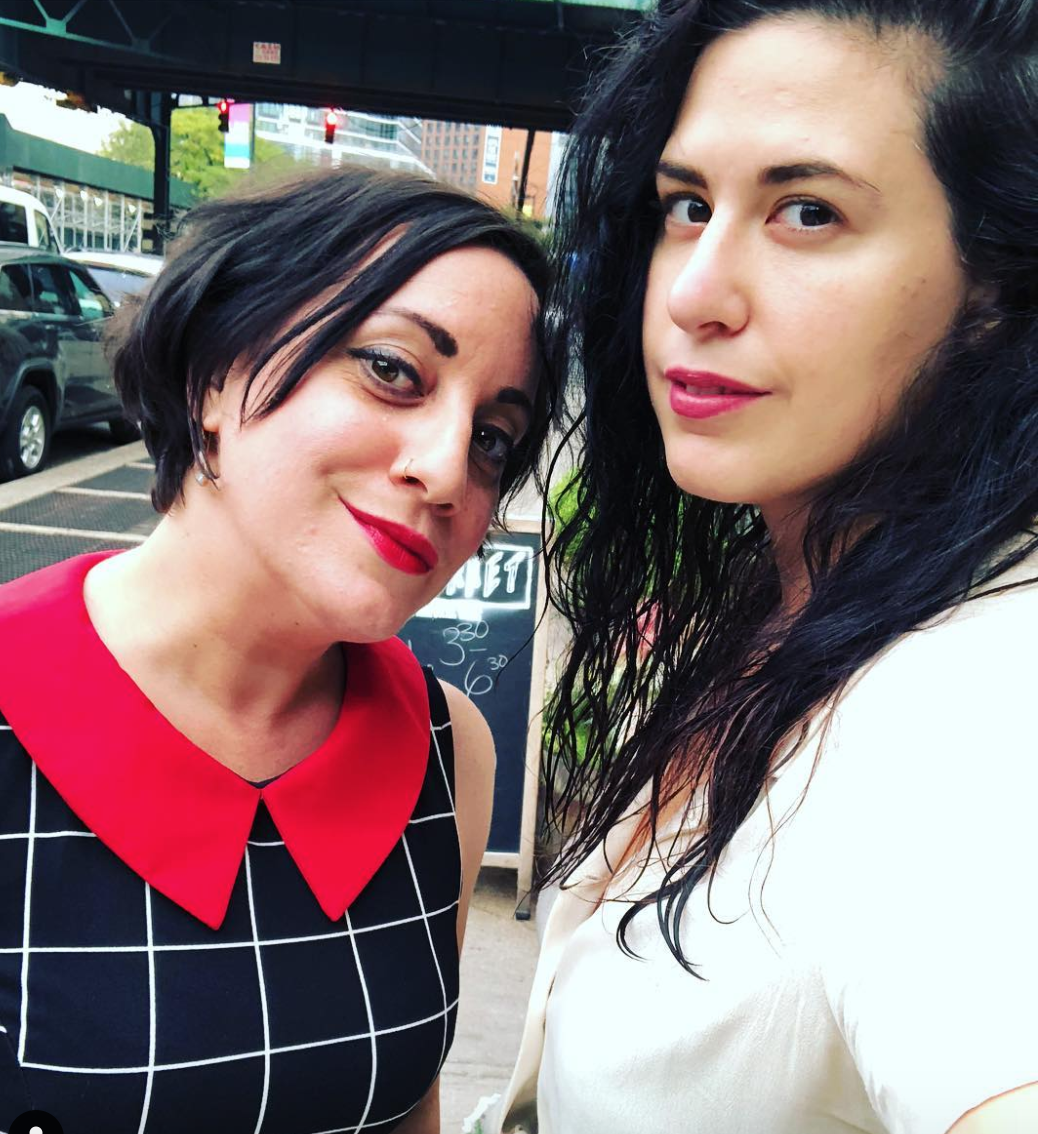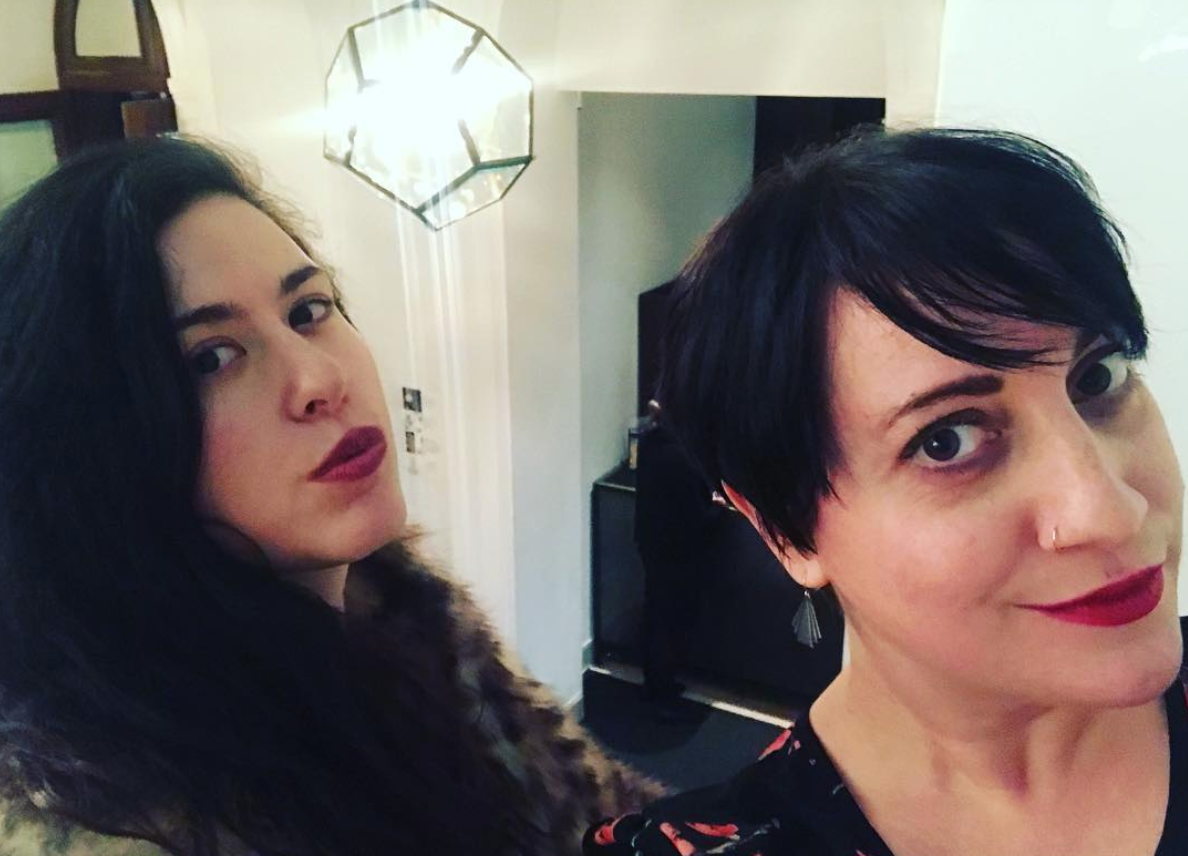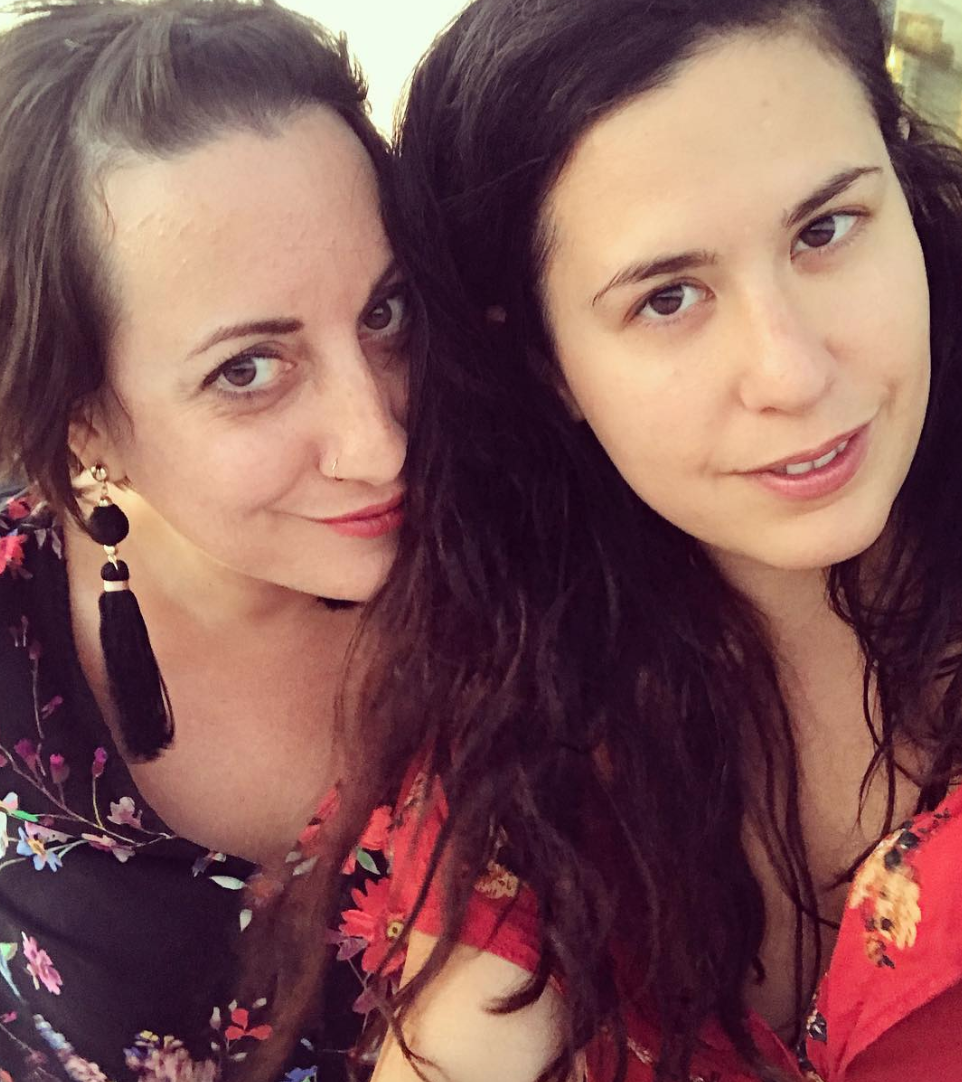How can we tap into our creative energies when we are battling chronic fatigue, chronic pain, inflammatory issues, brain fog, & the mental health issues that come from managing illness?
Read MoreMagical Thinking: Finding a Way Back to the Body
BY JENNIFER BROUGH
“To tell the truth is to become beautiful, to begin to love yourself, value yourself. And that's political, in its most profound way.”
Autumn arrives, at last, in explosions of red, orange, and yellow. Night creeps in sooner and small crackles of change electrify the air. Leaves fall echoing circular motions of death and, soon enough, gentle rebirth. In a year so fractured with continual threats to life, through health and politically corrupt structures worldwide, the seasonal shift and recently passed samhain provide much-needed anchors in times that are easy to feel adrift in.
Realising that the year is almost over, I am - as I imagine others will be - still trying to find footing against a backdrop of low-level anxiety, violence on a global scale, and fears of what the future will unveil. As the natural world is entering its cycle of decay, I feel a growing sense of invigoration. In addition to enjoying my favourite season and kindling flames of inspiration from the work of activists, artists, and writers, I am now fully recovered from a long-awaited operation for endometriosis. As my body is expanding in its range of capabilities, I feel not a sense of return to myself, but a new series of openings slowly unfolding.
Dissociation
Many chronic illness sufferers will be familiar with Susan Sontag’s Illness as Metaphor, and the “kingdom of the well and the kingdom of the sick”. The former is all around us, institutionalised in gyms, doctors’ surgeries, stores, and diet plans. The wellness industrial complex has extended its tendrils into every area of consumable content, promising continual health - or the idea of it - in exchange for clean eating, charcoal, burpees, and multiple other methods. This kingdom feels even larger when you stand outside its drawbridge, and my ushering into the other, bleaker realm was not a gentle one.
Six years ago, I woke in blistering pain. I showered, vomited, and, bent double, phoned the National Health Service helpline for advice. A suspected ruptured appendix later became a twisted fallopian tube cutting off the blood supply to my right ovary. An uncommon, deeply uncomfortable event. That night in the hospital bed, as I swam in a tramadol haze, the pain suddenly stopped. The surgery was the following morning, but by then the ovary had ‘died’, as the surgeon told me post-op. She explained that, “a normal ovary is white, like a golf ball, but yours…” then showed me a photograph of a purple apple-sized mass. “Oh, right,” I replied, mentally adrift. “You can still have children,” she assured me, but it was hard to accept this token of relief. I asked what they did with the ovary, wondering if it had already been burned away or was floating in a jar somewhere. I don’t remember her exact answer, but the word disposed bubbles up.
Since that incident something internal had shifted and, a year later, the pain resumed. The officious surgeon I sat across from mentioned the possibility of endometriosis and scheduled another operation. She was right. The endometriosis was mild, ablated away, and I was stitched up and sent home. I remember taking the bus back from the hospital feeling that familiar separation. After another physical removal of infected tissue, I felt a mental removal from myself. I tried not to dwell in that darkening space.
The problem with endometriosis, however, is that it can grow back at any time - even if managed with hormones. I, like many other people living with it, have become a minor expert in this condition, advocating for bodily autonomy and the best course of treatment. The process is disheartening and tiring, and can make the body feel like an uncooperative machine. In living with endometriosis, alongside fibromyalgia, my body became a source of blame. It was the reason my social life suffered, intimacy became strained, and it acted as a brake on any form of spontaneity. Only recently, after much therapy, I realised the need to reclaim my body, to learn to live in it, as well as with it, anew.
Division
After my most recent laparoscopy, suspended between waking and dreaming, I saw two dark green frogs sat on my chest. Their glassy eyes looked up unblinking. When I came around properly, I searched for what the appearance of frogs in dreams mean - transformation and renewal. Sometimes metaphors write themselves.
Despite the chronic nature of this illness, transforming my thinking beyond a binary approach to wellness has been necessary to keep going. Pain and its management are seldom either/or states. Instead pain is shades of a spectrum; some days are manageable and I am active, others are better suited to staying in bed. I initially resisted identifying myself as ‘disabled’, believing I was unworthy of the designation. Part of this emerges from a need to categorise phenomena in our search for meaning - to define something as this or that - but also a lifelong struggle with being ‘enough’. Redefining how I see and accept myself is overdue, an act that won’t be completed quickly.
Part of this redefinition extends outside of self-care to how I’ve come to define the concept of care as a collective verb. Feminist movements have been historically predicated on group efforts, in which each person has a role and is supported by others. As the pandemic presses on the most vulnerable in our society, mutual aid groups have organised food parcels, rent strikes, and fundraising in the absence of meaningful action from governments. The patient/doctor experience also operates on a similar top-down structure, and I have been bolstered by finding virtual communities and friends through online spaces of care. We’ve exchanged tips and tricks when in those medical offices, signed each other’s petitions, and created art centred around disability. The latter especially has been particularly restorative. Not only do these projects offer artistic and experiential solidarity, but give us the room to indicate towards the worlds we desire, a vague map of how we write them into existence.
The three division mark scars I bear on my pelvis serve as a reminder of the necessity to collapse separation between several areas; be it the medical either/or of the kingdoms of the well and the sick; the dissociation between acknowledging and responding to the needs of my body; or the experience of sickness as an individual, instead of a part of a shared group.
Deep Diving
Outside of these groups and creative practices, two friends and I have formed a coven. A place where we mostly watch horror films, discuss tarot, and share memes and art. On the day of the most recent new moon, my friend led a ritual of letting go and rebirth. Over Whatsapp, we spent half an hour meditating, writing down what we hoped for, and what we wanted to purge ourselves of. After folding our papers up tightly, we burned each piece. I felt my body move as I breathed, where pain niggled and how it sat in relation to the rest of my being. Something shifted.
Perhaps not as intense as The Craft, but our coven’s ritual proved deeply emotional nonetheless. Not just because of the things we ablated, but the act of carving out time for oneself and others frees the subconscious to become unstuck. Allowing oneself to take time and reveal desires to ourselves forfeits certainty. More so, it allows vulnerability. To feel what it means to really inhabit the bodies we are in. In these small sacred acts, there is room for the chaotic, the uncontrolled, and this is deeply liberating.
A few days after the ritual, I came across a line from the poet June Jordan:
“To tell the truth is to become beautiful, to begin to love yourself, value yourself. And that's political, in its most profound way.”
I interpret telling the truth as a continual, reflective act, a mode of being to carry in each place we occupy - alone or as part of a group. Telling the truth about how the world is, and how you are within it, allows the lines of stability and categoriSation to blur. Telling the truth is, as Jordan says, a process of becoming. For me, it has been recognising that while I have muted these inner feelings of loss or disappointment, they always catch up. In leaning into the darker parts through meditative moments and online spaces, I can feel the raw nerve endings of bodily acceptance pulsing, and possibility glitters.
Jennifer Brough is a writer and editor living in London. Her work has most recently appeared in perhappened, Artsy, and Barren Magazine. She curates creative submissions for Sisters of Frida, an experimental collective of disabled women. You can find her on Twitter @jennifer_brough or jenniferlbrough.com.
by Lisa Marie Basile / ritual poetica
Journaling The Body: Prompts for Chronic Illness
BY LISA MARIE BASILE
I live with #ankylosingspondylitis, so I live with daily pain and immobility. I’m also a patient advocate, so I realize how much of an emotional toll managing chronic illness — including dynamic disabilities, inflammatory diseases, or mental health issues — can take. Here are some of the journal prompts based I’ve been using in my journaling practice. I want you to know that you’re not alone.
There are SO many studies in clinical journals proving the beneficial psychological and even physiological effects of expressive writing. I’ve known writing has the capacity to change us since…forever, but science does offer some explanation. Our bodies change when we make space for our feelings.
When we hold our feelings in, it can devastate our bodies (cortisol build-up, for one, is a real issue) and our psyches. It is especially isolating to live with a chronic illness; suffering day to day without people truly understanding can take a toll on you. This can cause greater anxiety and stress which cyclically leads back into pain and worsening health. Your journal is a place for your truth. Take advantage of it. Let the shadows out and embrace joy, as well. It is not a solution nor a cure, but it is its own type of medicine.
Think of writing as one powerful tool in your self-care arsenal. It’s not a quick fix. It’s not a miracle — but it holds a mirror up to who we are, and can help us find autonomy in the experience. Follow my transformative writing page at RITUAL POETICA.
The Astrolushes Podcast: Skeptics, Cosmic Lessons, & Authenticity
Astrolushes is a podcast at the intersection of astrology and literature, ritual, wellness, pop culture, creativity — and, of course, wine. Expect guests, giveaways, & games — and get ready to go deep with us.
The water-sign hosts are Andi Talarico, poet, book reviewer and Strega (@anditalarico) & Lisa Marie Basile, poet, author of Light Magic for Dark Times, & editor of Luna Luna Magazine (@lisamariebasile + @lunalunamag). You can the astrolushes on Twitter, too, here.
LISA MARIE BASILE: Let’s chat about the birth of AstroLushes! I think it sort of started on a drive we took to Salem, MA, where we witched out for a weekend and visited HausWitch for my Light Magic for Dark Times writing workshop. In the car, I threw celebrity and literary names at you and had you guess their big 3 signs. You were amazingly on point! I'm wondering, besides having fun with it, what do you personally think the 'use' or 'reason' for this astro-knowledge is? I think people are generally fascinated, but we both know there's more to it.
ANDI TALARICO: That road trip and our time in Salem definitely feels like the genesis of this show! It started with us guessing celebrity's charts and now it's just a part of all of our conversations. I feel like now we're constantly wondering about writers and actors and philosophers through the lens of their astrological placements. It's a fun game but I think it also allows for a possibly deeper understanding of the art and culture that we engage with.
And engagement was how I came to astrology. My mother always read our horoscopes from the paper when I was growing up; she's a mystical Pisces who has visited psychics, believes in prophetic dreams, and finds herself fascinated by the moon. I inherited a lot of my curiosity from her. But by age 12 our household had changed considerably and it became a harder place to exist and grow in. So it's no surprise to me, looking back, why that was the time I started studying astrology.
It was a way of making sense of the world. It also gave me an opportunity to talk to people about themselves (and to keep the focus off of myself.) It made me feel like I had some sort of agency, a voice, a new authority. Now, the language of astrology, to me, is less about telling people about themselves and actually, much like my tarot practice, using the themes and ideas as lessons that we can use to fully become our best, most authentic selves. That's where it crosses over into self-care as well.
How do you feel about people who think astrology is bogus, Lisa?
Astrology…much like tarot practice, uses the themes and ideas as lessons that we can use to fully become our best, most authentic selves. That's where it crosses over into self-care as well. — Andi Talarico
LISA MARIE BASILE: I love that you say it's an engagement with everything around us. And that, as a child, it helped you navigate a very difficult world. It truly is a language we learn and then we speak, and that can bring people together in an instant. And it can help us focus on the many characteristics of ourselves. In my life, processing the trauma I've experienced through the filter of the Scorpio has been amazingly beneficial; I now look on it all as transformative, rather than destructive.
It's also really interesting to give a name to the various inclinations and motivations for people's art or behaviors. Especially when you look at creative people, or really evil people, and you start seeing how many of them fit into a certain astrological sign, or element. It may not be scientifically proven, but that’s the sort of mystery and liminality that we derive meaning from.
I am a scientific person. I believe that reason, empirical evidence, and research is important. I live with a chronic illness, and I'm a health writer as a day job. It's important to me that information is disseminated accurately, or, say, that the injections I take have been proven both effective and safe, and that sometimes, you need medication over meditation, in order to heal.
At the same time — people need to know there’s more to health and wellness than big pharma. And there’s more to this world than what we can see. I think the zodiac allows us to approach the liminal, the intuitive, the subterranean. It does exist outside of 'objective science' and that's okay. It allows us to dive headfirst into the shadows of this world and our lives, and I think that's the key to the feeling whole — straddling both sides. Science has a place, but so does the esoteric. You can't prove love, but we all feel it. So, it's the same thing. Some things we just explore knowing that it may be obscure. I am grateful to be able to take part in the world from both stances.
What do you think about how people can use the zodiac as a healing tool, or in daily ritual?
There more to this world than what we can see. I think the zodiac allows us to approach the liminal, the intuitive, the subterranean. It exists outside of 'objective science' and that's okay. It allows us to dive headfirst into the shadows of this world and our lives, and I think that's the key to the feeling whole — straddling both sides. Science has a place, but so does the esoteric. You can't prove love, but we all feel it. — LISA MARIE BASILE
ANDI TALARICO: I definitely look through several horoscopes during the morning to see what my day/week might bring me. I mean, the basis of horoscopes are transits, what the movement of the current celestial journey means in my zodiac placements, and I love that about horoscopes — how it's a constant reminder that everything changes, nothing stays still, and how cyclical life can be, for good or bad.
I like to look to the planets/celestial bodies and their assigned western astrological associations for greater personal meeting. Like, what does it mean to be represented, as I am, by the Moon? The Moon shines because it reflects the light that is given to it. I feel the same way, again, for good and bad. I also shine brightest when I'm basking in the the light of stimulating conversation and affection. I turn inward and dark when I'm not given light to work with.
Also, since the Moon transits more often than other bodies, since it's constantly waxing or waning, it serves as a beautiful remind to keep pushing forward, that this moment isn't forever, to enjoy the view and perspective before it changes yet again. It's why I have a little crescent moon tattooed on my finger — my constant reminder that the only constant is change.
How do you feel connected or represented by Pluto, Lisa? Pluto is such a symbolically important planet of creative destruction, I'd love to hear your thoughts on that!
What does it mean to be represented, as I am, by the Moon? The Moon shines because it reflects the light that is given to it. I feel the same way, again, for good and bad. I also shine brightest when I'm basking in the the light of stimulating conversation and affection. I turn inward and dark when I'm not given light to work with. — ANDI TALARICO
LISA MARIE BASILE: Oh, that’s so beautiful! When you say, “I turn inward and dark when I'm not given light to work with,” I feel that in my core! I love the idea of this cosmic duality, how it represents the shadowy quietude and the display of light. It reminds me that we are all just star stuff. It’s why I started Luna Luna!
It’s funny you mention the tattoo, because I have one that also reminds me that things change; it’s an ampersand. Maybe that’s why you and I are so drawn astrology? That it provides a foundation we can find stability in but the fluidity we need to always be growing.
I think the fact that Pluto has been considered a planet, a not-planet, an exoplanet and whatever else, is very beautiful—a perfect and living representation of Pluto as a symbol: it dies and is reborn, and yet it remains this beautiful archetype of transformation, weathering the storms of idea and rule and order. Could literally anything be more perfect?
Pluto is my beautiful ruler, and I am indebted to its reminders. I have always been able to die and rise. I lean into the dark and then I die. I go into dark periods of change and emerge. I almost need it more than the light. But I suppose, that is my language. The darkness becomes a kind of light that makes sense.
I think that’s the beauty of this cosmic story. No matter what you believe or feel skeptical about, astrology’s narrative, symbolism and reminder to explore the grandness of human emotion and circumstance is all splayed out up there. We just need to look up.
What do you think about people who say they they believe in astrology and make Huge Life Decisions around it? Do you think it’s important to figure astrology into your day to day? Jobs? Dates? Etc? Or do you think it serves its best purpose as a tool for introspection, rather than a rulebook?
No matter what you believe or feel skeptical about, astrology’s narrative, symbolism and reminder to explore the grandness of human emotion and circumstance is all splayed out up there. We just need to look up. — LISA MARIE BASILE
ANDI TALARICO: LOVE this: "...Pluto as a symbol: it dies and is reborn, and yet it remains this beautiful archetype of transformation, weathering the storms of idea and rule and order. "
As for me, I don't make huge life decisions based on astrology in the sense, that, say, I won't work with people of certain signs or judge them based on their natal chart. The idea of not dating this sign or that sign is a prejudice to me, and unfair. Even knowing someone's chart information is an act of intimacy — that's private knowledge — and to use it against someone or to think you know everything about a person based on it...hell no. Absolutely not.
Can it help you locate potential challenges? Yes, I believe that. Is is exciting when your synastry is in alignment and looks positive? Of course. But we're all much more than our natal charts. We're our upbringing, we're our ancestors, we're survivors, we're our good days and bad days, we're what we've been allowed to be and what we've rebelled against. Our zodiac signs matter but they don't make or break us.
I WILL make decisions based on transits and the moon's phases, though. Like, new beginnings during the new moon — that just makes sense to my entire being, both my physical and spiritual self. I definitely believe in harnessing the new energy at the start of a new zodiac phase — focus on good communication at the start of Gemini season! Make those spreadsheets in honor of Virgos everywhere! Get real sexy at Scorpio time!
But, would I, say, not send an important email when Mercury's in Retrograde? No, I try not to rely THAT heavily on astrology. I try to use it more as a guide and tool for learning than a strict rulebook. But...I also hate rules and authority in general. I naturally bristle against those who think they have the exact answers, at least in areas that don't involve exactitude and true yes or no areas. I'm a skeptical human, in many ways.
Is is exciting when your synastry is in alignment and looks positive? Of course. But we're all much more than our natal charts. We're our upbringing, we're our ancestors, we're survivors, we're our good days and bad days, we're what we've been allowed to be and what we've rebelled against. Our zodiac signs matter but they don't make or break us. — ANDI TALARICO
FANCY THE COSMOS, WINE, AND A COZY CONVERSATION BETWEEN FRIENDS? LISTEN TO THE ASTROLUSHES PODCAST HERE
Manifestation + Healing: The Blossoming Magic of Spring
BY LISA MARIE BASILE
The coming of Spring brings with it all sorts of feelings. For many — like myself — it allows us to shake off the heavy cobwebs of winter’s seasonal affective disorder. It bring with it a sense of opportunity, change, and transformation, as the sun’s warmth melts the icy shell we developed over the dark months. In NYC, at least, and in many wintry parts of the world, that coldness makes you go inward, go quiet; the hibernation leads to an introspection and quietude that — although necessary — can feel isolating, exhausting, and endless.
I welcome the spring’s golden light. I am a new seedling each year, and with each spring I bloom again. I feel my body mobilize, my mind sharpen, and heart soften. The colors, the flowers, the balmy winds, the sparkling light that lasts until late into night — it reminds us of life, potential, growth. Here’s how to harness it:
Use the flowers as a reminder of resilience & transformation.
Everything changes form. We wilt. We bloom. And there’s a certain comfort in knowing that we are flexible and fluid — that everything has the potential to change; most of what we feel is temporary. The pain. The sorrow. The exhaustion.
When what we feel isn’t temporary and can’t be shaken off with the seasons, we can turn to the earth for a lesson in letting the light in: While we may have dark moments (or years), we can decide to unfold, as a flower, to let the light nestle into our petals and stems.
What happens when we let that light in just a bit? Can we find one thing to love or be appreciative for?
Create an herbal apothecary, and let the earth soothe your body.
According to the book A Wilder Life, there are many common herbs which have a multitude of uses. Of course, use only with the permission of your doctor (knowing that these may support or promote health, not cure diseases).
The most popular spring-time apothecary essentials:
Dandelion — Anti-inflammatory and diuretic (eat or drink the tea)
Garlic — Antibacterial, can be used for cleansing wounds (use as oil or in food directly from fresh garlic)
Holy Basil — Provides renewal and energy; is considered an adaptogen, for helping the body handle stress (use as a tincture or tea)
Saint John’s Wort — Mood-stabilizing, antiviral support, and can support the transition between seasons (tea or tincture)
Nettle — May provide support for allergies and immunity (tea).
Peppermint — This is a zesty kickstart for low energy, in addition to providing tummy support (tea or oil).
Take part in a daily manifestation ritual
Throughout the winter, it’s easy to think deeply about the wounds, voids, and shadows of our lives. By spring, the light and energy wake us to the beauty of nature — reminding us that we can create the change we need. We do not always have control over circumstances (like our finances or the daily burdens of life), but we can make space within our hearts for possibility.
The ritual is simple: Get a large jar with a lid (or another container that speaks to you), and each day — perhaps right before bed, or as you wake up in the morning — place a small piece of paper with an intention within the jar. Your intention should be written in present tense; it should be for something realistic, but aspirational. It can be for the physical or the non-tangible:
I have confidence in group settings
I am always making space for kindness and love
I am capable of saying what I want
I am assertive at work
I am a successful writer making enough money for rent, food, and travel
I feel worthy, loved, and respected
I have a beautiful summer beach vacation lined up this summer
If you are seeking more rituals and practices, my book LIGHT MAGIC FOR DARK TIMES contains several — many of which utilize the earth’s natural beauty and energy.
Lisa Marie Basile is the founding creative director of Luna Luna Magazine—a digital diary of literature, magical living and idea. She is the author of "Light Magic for Dark Times," a modern collection of inspired rituals and daily practices and the forthcoming "Wordcraft Witchery: Writing for Ritual, Manifestation, and Healing." She's also the author of a few poetry collections, including 2018's "Nympholepsy." Her work encounters the intersection of ritual, wellness, chronic illness, overcoming trauma, and creativity, and she has written for The New York Times, Chakrubs, Narratively, Catapult, Sabat Magazine, Healthline, The Establishment, Refinery 29, Bust, Hello Giggles, and more. Her work can be seen in Best Small Fictions, Best American Experimental Writing, and several other anthologies. Lisa Marie earned a Masters degree in Writing from The New School and studied literature and psychology as an undergraduate at Pace University.

































